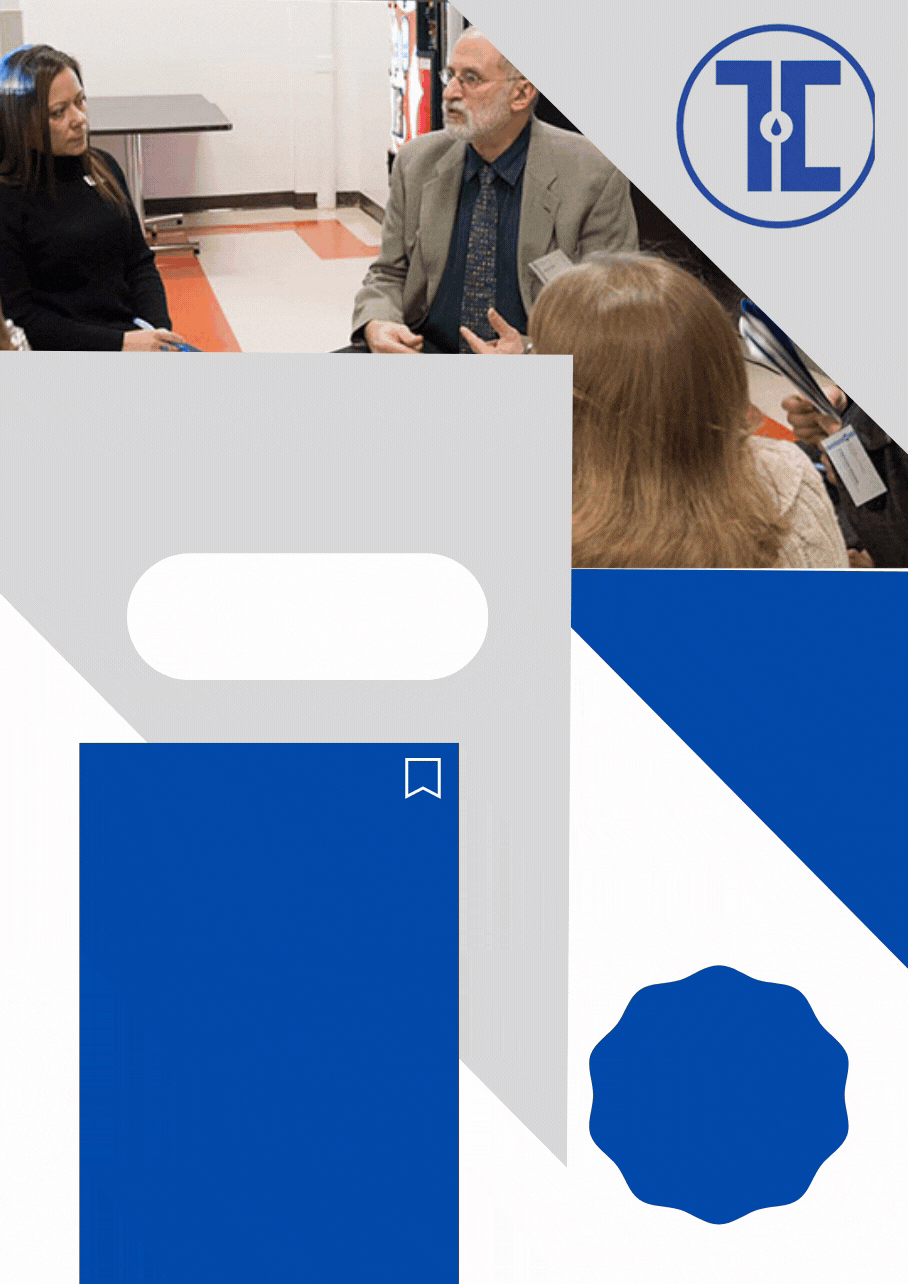
Love tech and teaching? Build a rewarding, in-demand career in instructional design
Learn more about instructional design and how to get certified as a NYSED Technology Specialist or become a qualified Corporate Trainer while earning your master’s degree from the STEM-Certified program at Touro Graduate School of Technology. By Davlynn Gundolff
When the world went into lockdown at the start of the COVID-19 pandemic in March 2020, everything changed in an instant – including the way we approached learning and teaching. Everyone from K-12 teachers and university professors to corporate trainers and professional development coaches were suddenly scrambling to figure out how to move learning online in ways that would be both engaging and effective.
Of course, in the last two years, much of the world has since reopened and many people are back in schools and offices. However, education has shifted in a fundamental and likely permanent way – and this improved approached is thanks in large part to the work of instructional designers.
What is an Instructional Designer?
An instructional designer works behind the scenes to help teachers of all types and in all kinds of settings improve their teaching methods and tools. That includes everything from providing insight on how to plan a curriculum to offering engagement strategies to recommending the right technological tools, all in the name of helping to enhance learning and keep students from kindergarten to college (and beyond) feeling engaged.
“We teach the teachers,” explains Dr. Patricia Baia, a Senior Instructional Designer at Touro Law Center who helps faculty create pedagogically-sound courses for law students. Holly Owens, Senior Instructional Designer at Academic Partnerships, agrees, adding, “Setting up learning opportunities for others is a process, and the focus of Instructional Design is the learner. We must adapt to their needs.”
Sometimes called training and development specialists, instructional designers start out by talking with stakeholders (like teachers or managers) to figure out the specific needs of the program they’ll develop. Then, they use their knowledge of educational best practices, different teaching methods, and technology to create courses, lectures, videos, manuals, and other learning materials, along with providing training to help others more effectively use those materials and improve their teaching skills.
Which are some of the career opportunities in Instructional Design?
While many instructional designers work in academia helping to plan K-12 or college curricula and enhance teaching methods, there are plenty of opportunities in the corporate world to improve learning as well. In fact, the demand for instructional designers has increased significantly since the start of the COVID-19 pandemic as companies, hospitals, and universities continue the shift to remote or hybrid learning. By 2030, the field is expected to grow by 11%, adding about 35,000 jobs per year.
“The pandemic really moved forward Instructional Design because of online learning,” Patricia shares. She says that organizations from corporations to hospitals and health services to schools and universities are looking for people who can create effective programs and educate teachers in the best practices for implementing technology and engaging learners. She’s also noticed that there are many remote jobs and hybrid opportunities available, including for some of these in-demand industrial design roles:
- Instructional Designer: Work in a wide range of environments, from a school to a hospital to a private corporation designing learning and education modules, workshops, in-person trainings, eLearning courses, on-the-job and self-directed methodologies, all while making an average annual salary around $75,000.
- Instructional Technologist: Earn an average salary of $53,000 and up to $76,000 helping an organization effectively use technology like Zoom, Brightspace, and other programs and apps, providing technical expertise to identify the right tools and then teaching the employee show to use them.
- Learning and Development Specialist: Create the internal programs that help employees stay on top of industry trends and the evolving scope of knowledge they need to grow and thrive while earning an average annual salary of around $65,000 or more, depending on your education and selected industry.
- Compliance Training Specialist: Spearhead learning in a corporate or healthcare environment by developing programs and establishing methodologies for compliance, certification, and other requirements in a role with an average salary of $58,000 annually and the potential for higher earnings in some fields.
“It’s exciting,” Patricia says. “These roles are in high demand. People want the best of the best, and the salaries are competitive.” She’s especially excited to see advancement opportunities and leadership roles in instructional design – with career paths that potentially lead to the manager, director, or administrator level.
What will I need to work in Instructional Design?
To reach those higher level jobs and leadership positions, you’ll need to more than simply to have worked in a field like teaching. While many employers do prefer Instructional Design candidates that have related experience in the field in which they plan to work, those candidates also need to have a solid background in the fundamentals of teaching and the necessary knowledge and understanding to create strong, pedagogically-sound courses.
As Patricia puts it, “Being a teacher isn’t enough. You really need the education.” She says experience is useful, but it will only take you so far. “The Master’s level is what will get you the promotion, the title, and the money.” Holly agrees, saying that earning a master’s degree is what will really help get that bump in salary.
Touro College Graduate School of Technology’s Master’s in Instructional Technology
Both Holly and Patricia currently teach courses that are part of the Touro College Graduate School of Technology STEM-certified master’s degree in Instructional Technology, which fully prepares graduates to become New York State certified Educational Technology Specialists or qualified Corporate Trainers.
These two distinctive tracks each consist of 9 required courses plus 2 electives, that build a comprehensive foundation in the principles of Instructional Technology and Instructional Design, along with areas like the philosophy of education and classroom networking. All courses are available for in-person or online learning, making it easy for both traditional and non-traditional students to advance their education, boost their careers, and increase their salary potential.
Another benefit of the Touro’s program is that many of the professors also actively work in Industrial Design. “We have a dedicated team of instructors who are working in the real world,” Holly explains. “That means our students have exposure to what’s happening right now in the industry.” Holly herself is a great example; in addition to teaching “The Foundations of Instructional Design,” she also works as Senior Instructional Designer at Academic Partnerships and hosts a podcast about ed tech tools and how to change education using technology.
Patricia also brings her real-world expertise as an Instructional Designer at the Touro Law Center into the classroom to Touro GST, where she teaches “Distance Learning Applications.” For her, it’s a win-win, because she gets the chance to practice and refine her teaching craft to share with other faculty members. “Teaching is like my lab – and then I go back and teach the faculty at the law school how to do it.”
Both professors are quick to point out how Touro GST’s Instructional Technology Master’s program differs from others that are out there. Holly loves the way the courses build on each other, ensuring that students see the connections and can develop a diverse range of knowledge as they go, while Patricia appreciates that students get an opportunity to put that knowledge to the test. “Touro GST has a well-designed program with a practical element: You have to build a full online course,” she explains.
Holly also recognizes how much support Touro students get every step of the way. It starts with the smaller class sizes that allow for more one-on-one attention from the faculty and extends all the way up to the program chairs and even the Dean. It’s a unique attribute – and one that really benefits the students who choose to pursue their master’s degree in Instructional Technology at Touro GST.
Whether you’re looking for an NYSED-approved master’s program that will lead to your certification as an Educational Technology Specialist or you want to accelerate your career and salary potential as a Corporate Trainer, Touro GST has a master’s degree in the Corporate Technology track that can get you there. Contact Touro GST today to apply or learn more!













